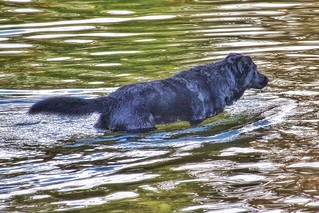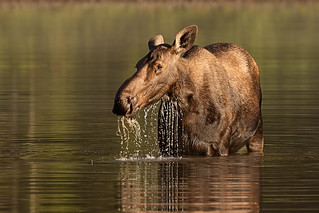The Western Northern Studies Committee invites you to apply for:
The Northern Scientific Training Program (NSTP)
The Northern Scientific Training Program (NSTP) provides funding for senior undergraduates and graduate students conducting research in the North.
This is a supplementary grants program which was put in place to help defray the high costs of conducting fieldwork in the North and to encourage students to develop a commitment to northern research. Students must also have other sources of funds to be eligible. The program funds thesis-based research projects on northern topics from all disciplines and in multi-disciplinary fields.
Online application forms are available at: https://nstp-pfsn.smapply.io/ You will need to Register to create a new account, or login with your existing username and password.
The deadline for applications is November 10, 2020. The application portal will close after the deadline.
Further information on the program is available in the information manual, which you can access on the NSTP Application and Reporting system website: https://nstp-pfsn.smapply.io
Tips to submitting a successful NSTP Application and frequently asked questions are attached.
CRITERIA and ELIGIBILITY
The Program supports field research in any discipline – life, physical, human and health sciences – as long as the research has an essential orientation and impact on the North, and is part of the student’s thesis research.
Funding is available for ALL complete and eligible applications that are submitted from Western. Typical awards are between $2000 and $3000, with a recommended maximum request of $4500. Awards are intended to provide travel expenses for students already receiving research funding from another source (for example, a supervisor’s research grant).
The student must be a Canadian citizen or permanent resident and enrolled in a graduate or senior undergraduate program at a Canadian university. The research must relate directly to their thesis (undergraduate honors, Masters or PhD) research. Part time students are eligible for NSTP funding.
A student who is employed or remunerated for their research in the field cannot receive NSTP.
Field schools are not eligible.
Geographic eligibility: The research activity and travel must be north of the sporadic discontinuous permafrost line (approximately 50 deg N), ANYWHERE in the Northern Hemisphere.
SIMPLE APPLICATION PROCESS
IT IS EASY! The application and statement of research require significantly less content and effort than NSERC, SSHRC or OGS!
Students must go online, create a profile and complete the online application form. New supervisors will have to create a profile as well. The forms for students and supervisors are available at: https://nstp-pfsn.smapply.io
Following the field season for which funding was provided, a brief report is required from the student through the online system.
Please follow the instructions in the information manual on main page of the NSTP application system website. Incomplete or incorrectly formatted applications will be returned to the applicant for revision. Applications received at the deadline that are incomplete or requiring changes may not be accepted.
Frequently Asked Questions
DEADLINES AND CONTACT INFORMATION
The deadline for completing the online application is 11:59 pm, November 10, 2020. The application portal will close after the deadline.
Please direct any questions to: Northern Studies Committee at northern@uwo.ca.









